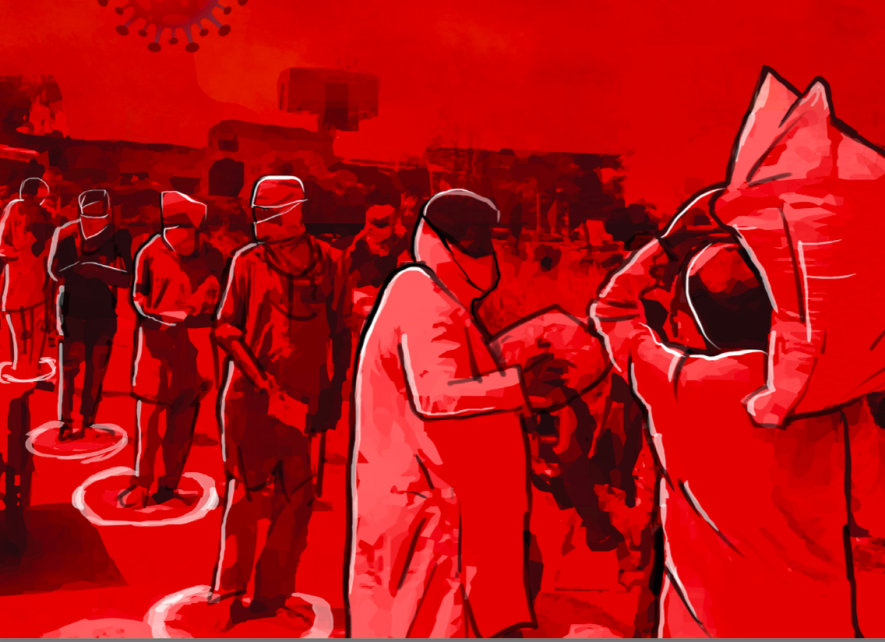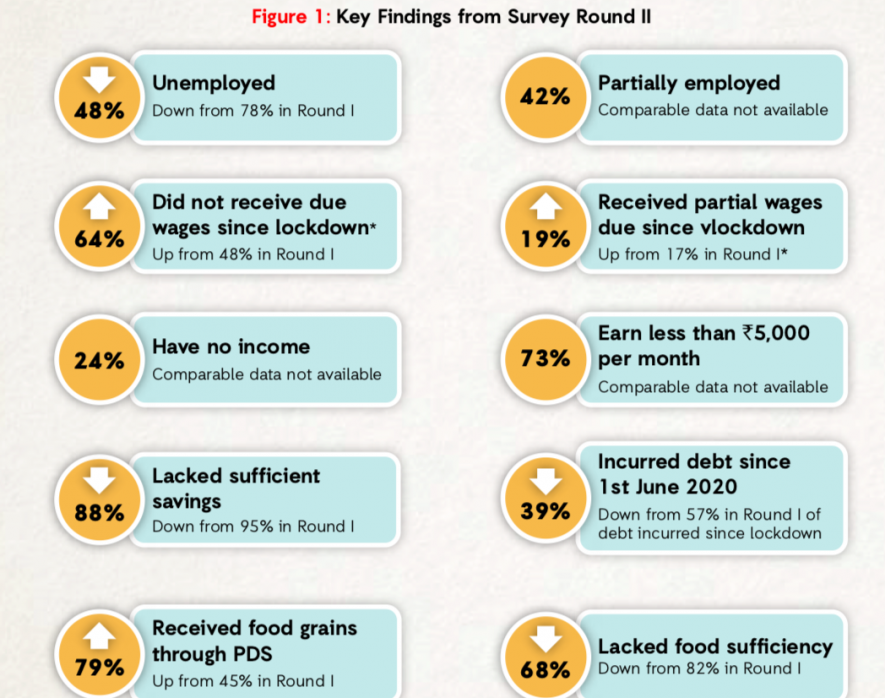Informal Sector Workers Continue to Struggle with Low Wages, High Debts: ActionAid Report

A fact sheet produced by ActionAid Association India following its surveys focussing on informal workers has exposed the inadequacies of the governments that are failing in improving workers’ lives.
The extensive report, which is a part of the organisation’s longitudinal study on the impact of COVID-19 and the lockdown on informal workers was released on Saturday. The second round of the survey was carried out in August and September this year, across 23 states and five union territories. The survey took place during Unlock 3.0 (the third phase of the government’s phase-wise reopening amid the pandemic). More than 16,900 workers were interviewed in 402 districts. The interactions covered a range of issues including livelihoods and wages, savings and expenditure, and access to social security schemes and other entitlements.
‘Livelihoods Lost, Debt Mounting’
The ActionAid data shows a significant increase in employment as compared to its first round of survey. However, 48% of the workers surveyed said they were still unemployed. Only 10% of the workers reported full-time employment, while 42% were either employed part-time or had worked occasionally during the Unlock phases.
The report said that around 68% of the respondents reported lower and insufficient food consumption. More than 67% of the workers in the urban areas and 68% in rural areas reported that being the case.
With low wages and decline in savings, workers continued to depend heavily on loans. Nearly 39% of workers reported that they had to borrow to support themselves. This included 47% of the workers surveyed in urban areas and 36% of the workers in rural areas.
Nearly 57% of workers who migrated for work before the lockdown said that they wished to continue staying in their source districts instead of migrating out for work. Out of these workers, 61% said that they wanted to stay back due to the fear of COVID-19, while 20% said that they were concerned about the lack of job opportunities following their migration.

While on the one hand, employment has still not reached the pre-lockdown level, on the other, monthly wages received by the workers have also remained extremely low.
Almost 24% of the respondents reported having earned no wages in the unlock phases and close to 50% said that their monthly wages were less than Rs 5,000. Additionally, over 64% of the respondents said that they had not received the wages which were due to them at the beginning of the lockdown.
Speaking at the launch of the report, Dr. Sumit Mhaskar of the O P Jindal University, said, “The report presents a robust set of data on the loss of livelihood alongside indebtedness; it presents an increasingly precarious picture. This precarity is aided by the pandemic, but these conditions were persistent prior to the pandemic and the lockdown.”
Speaking at the webinar, Professor Lakshmi Lingam of Tata Institute of Social Sciences, said, “The level of vulnerability will only increase with women bearing the greatest brunt -- lack of access to maternal health, documentation and social security. Women are being pushed into marriage much earlier than they used to in the pre-COVID times. Several families are wanting to marry off their daughters, since in that case migration would be easier without having to worry about any violence being inflicted on them.” She added that the women are working much harder to secure food and water, leading to the discontinuation of their education.
The first round of the national survey was conducted by ActionAid between May 14 and 22. The findings had highlighted the acute distress among the informal workers, especially migrant workers, with extremely high levels of livelihood loss (78%) and indebtedness (53%). More than half of the migrant workers reported that they were stranded for over a month and nearly three-fifths said that they had to vacate their housing during the lockdown.
Also read: Delhi: More Informal Workers', Community Participation Expected in Nov 26 General Strike
Get the latest reports & analysis with people's perspective on Protests, movements & deep analytical videos, discussions of the current affairs in your Telegram app. Subscribe to NewsClick's Telegram channel & get Real-Time updates on stories, as they get published on our website.
























